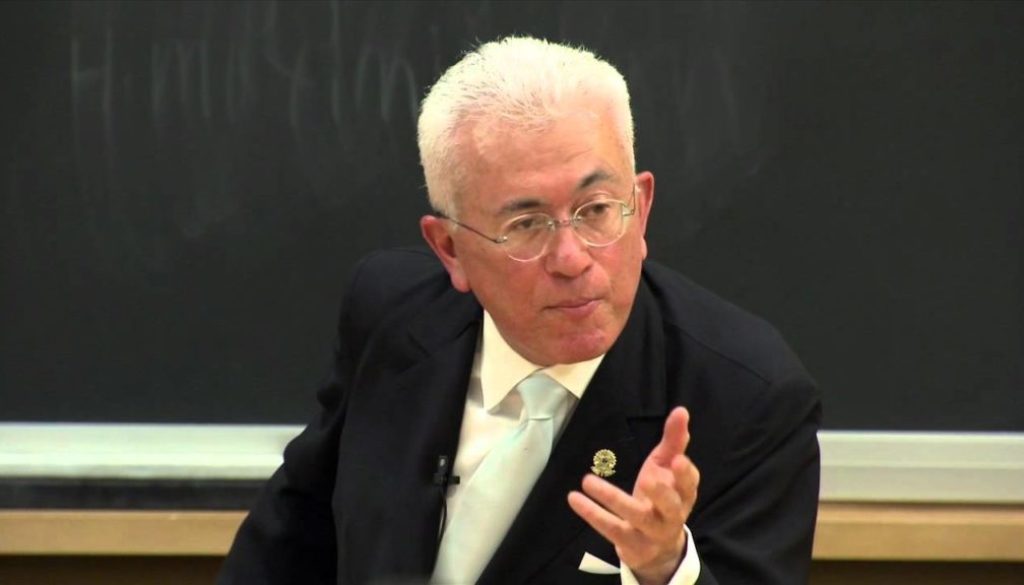
From The Nation, the interview with Roberto Mangabeira Unger.
What is the way forward for progressives in a time when it seems both centrism and authoritarianism are resurgent? What should be the character and scope of a national program that progressives in and outside the Democratic Party can and should embrace? There are many places to look for answers to these questions, and no doubt the answers will have many inspirations.
One of the most incisive articulations of an American progressive alternative is that of Roberto Mangabeira Unger, a Harvard Law professor, philosopher, and former Brazilian politician. He has written over two dozen books addressing an unusual diversity of topics, including critical legal theory—which he helped develop—economics, philosophy, and religion. Given this range, it would be unfair to reduce Unger’s work to one core idea. But perhaps the major theme of his work is summed up in his argument that “society is made and imagined, that it is a human artifact rather than the expression of an underlying natural order.”
The Nation recently spoke with Unger about his proposal for an alternative progressive track for American politics. Along the way, we discussed racial injustice in the United States, Donald Trump’s election, democratizing new technologies, the future of education, and progressive taxation. Of pressing importance is the topic of structural economic and political change, and in turn, whether Unger’s vision is impractical. This conversation has been edited for clarity and length.
DANIEL STEINMETZ-JENKINS: Right now the streets are filled with protesters demonstrating in the aftermath of George Floyd’s brutal killing by Minneapolis police. Progressives have long struggled to confront and overcome racial injustice in the United States. You have criticized their approach, the dominant approach, to racial oppression. What is your understanding? And what is your proposal?
ROBERTO MANGABEIRA UNGER: To grasp the meaning of this moment for the future of the country, it is useful to begin by distinguishing the immediate background—the failure of the established approach to racial injustice in the United States—from the larger context of which this failure forms a part: the disorientation of American progressives and the long-standing absence in American politics of any program responsive to the needs, interests, and aspirations of the working-class majority of the country, white or black.
The prevailing response to racial injustice in the United States has been the integrationist orthodoxy. It treats racial injustice as a threshold issue, to be addressed before all problems of economic equality and opportunity. Its signature expression is affirmative action. It has done little for those who most require protection, the vast number of black people who languish in prisons and dead-end jobs. This approach has offended the white working-class majority, who believe themselves to be victims of a conspiracy between sanctimonious white elites and the representatives of black workers. And it has provided a model for the identity politics that has addressed legitimate demands for respect and recognition only by diverting the country from engagement with its structural problems.
There is an alternative. The alternative is to distinguish individualized racial discrimination from the advancement of the unequipped, the excluded, and the impoverished. Individualized racial discrimination should be criminalized, as it is in many countries. Social advancement should be predicated on real disadvantage or exclusion, wherever it is found. Racial stigma should serve as only one of the standards that, together with other forms of disadvantage, trigger such advancement. Race should be combined with class rather than separated from it.
DSJ: How did the country arrive at its present situation, with the presidency in the hands of Donald Trump, after decades in which millions of working-class voters abandoned the Democratic Party?
RMU: The principal vehicle of American progressives, the Democratic Party, failed to come up with a sequel to Franklin Roosevelt’s New Deal. The sequel would have had to be very different from the original, which focused on economic security rather than economic empowerment and offers no model for how to bring more American workers into the good jobs of the most productive parts of today’s economy.
Let us look coldly at what has happened since then. Having begun under Lyndon Johnson by treating the poor as an insular minority in need of support and blacks as another insular minority in need of rights, progressives offered nothing to the working-class majority of the country other than later to dissolve them into a series of group identities and special interests. Conservatives responded with the formula by which, under Democratic as well as Republican administrations, they won and wielded power for half a century: combining material concessions to the moneyed class with moral concessions to the moneyless classes. For this whole period, the United States has had no economic growth strategy other than cheap money, delegated by the federal government to the central bank, and productivity growth has stagnated. The majority of American workers have felt—and been—abandoned.
Into the expanding vacuum that resulted from these successive abdications came the plutocratic populism of Donald Trump: a big fat hoax, given that it has done nothing for the abandoned majority other than to wage war against low-skill immigrants while continuing—it must be acknowledged—to get high employment, with relatively few good jobs, on the basis of the cheap-money policy. What an opportunity for the progressives, if they had a program. They don’t.
Read more on The Nation.


